
Ever wondered why some businesses seem to effortlessly build loyal customer bases while others struggle to keep customers interested? It’s all about how you engage customers.
When they feel valued and understood, they are likely to return and recommend the business to others. Engaged customers will not only make repeat purchases but also become brand advocates, sharing their positive experiences with their networks, which drives new customer acquisition.
Numbers don’t lie: businesses that engage their customers on every available channel can see a 23% higher share of wallet, profitability, revenue, and relationship growth compared to the average customer.
But how can businesses consistently achieve this level of engagement? By making the most of customer engagement platforms. These provide countless tools to personalize interactions, respond quickly to inquiries, and anticipate customer needs.
By the end of this article, you will have a clearer understanding of why customer engagement is vital and how to choose the best platform to suit your business needs.
What’s a customer engagement platform?
A customer engagement platform is a comprehensive software solution that facilitates and enhances interactions between a business and its customers across various channels, such as SMS customer engagement, email campaigns, and WhatsApp messaging.
It allows businesses to engage with their customers more effectively, personalize communications, gather and analyze customer data, and deliver consistent, high-quality experiences throughout the customer journey.
Criteria for evaluating customer engagement platforms
Here are the key criteria to consider when choosing the right customer engagement platform for your needs.
Features and functionality
Ensure that the platform can integrate smoothly with your existing Customer Relationship Management (CRM) system to provide a unified view of customer interactions.
Pro tip: Look for real-time data syncing capabilities to keep customer information updated across all systems.
Multi-channel support
- Email: Create, send, and track email campaigns using platforms like HubSpot, Mailchimp, or ActiveCampaign.
- Social media: Manage and engage with customers across various social media platforms from one place. Try tools like Hootsuite, Sprout Social, SocialBee, or Zoho Social.
- Voice and video: Access more personalized interactions via voice calls and video conferencing. Zoom, Microsoft Teams, and Google Meet fulfill all your media requirements.
- Live chat and messaging: Choose platforms that offer real-time support and interaction through live chat, SMS, and messaging apps. Our top picks are Intercom, Zendesk Chat, and Textmagic – our all-in-one solution for your business texting needs with capabilities like two-way SMS chats, reminders, and notifications.
Ease of use
A platform with a user-friendly interface and intuitive design ensures that all team members can quickly learn and effectively use the system, reducing the time and cost associated with training. Users can perform tasks efficiently without needing extensive technical knowledge.
Scalability
The platform you choose should be able to handle an increasing volume of customer interactions as your business grows without compromising performance. It should include flexible features and customization options that can evolve with your business needs. This includes adding new users, integrating with other tools, and scaling up functionalities as required.
Customer support
Look for platforms that offer 24/7 support through various channels, such as phone, email helpdesk, and live chat. To make the most of whichever platform you choose, make sure that it includes comprehensive training resources, such as tutorials, webinars, and documentation.
Pricing
Look for clear and transparent pricing models without hidden fees. Understand what is included in each pricing tier and how additional features or users impact the cost. Then, consider the potential return on investment (ROI) by comparing the cost to the expected benefits, such as increased customer satisfaction and higher sales.
Customer reviews and ratings
Real-world experiences from other users provide valuable insights into the platform’s performance, reliability, and ease of use. Look for reviews on independent review sites and consider both positive and negative feedback.
Also look into expert reviews to get more comprehensive, objective assessments. These reviews often compare multiple platforms, helping you understand how each option stands out in the market.
Top 15+ best customer engagement platforms for SaaS companies
Below, you’ll find top platforms designed to help SaaS companies simplify support, marketing, and onboarding, so you can keep users engaged at every stage of the customer journey.
1. Textmagic
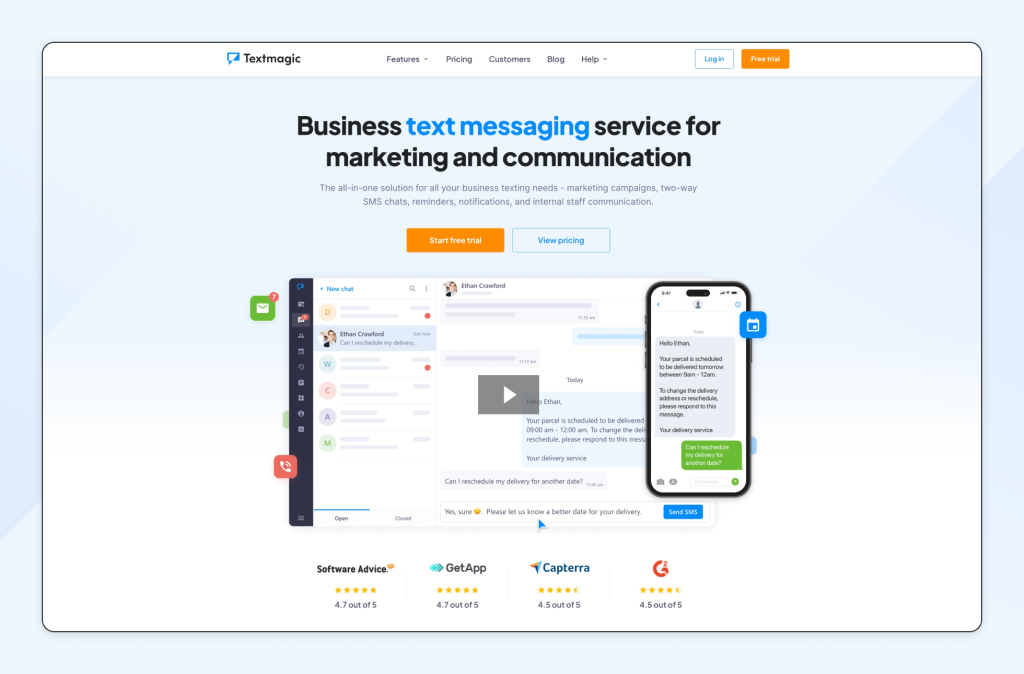
Textmagic is a user-friendly business communication platform built to help teams manage conversations across SMS, email, WhatsApp, and other channels, all from one unified inbox. It simplifies customer communication, enhances SMS customer engagement, streamlines workflows, and supports personalized outreach at scale.
Key features
- Multi-channel messaging: Communicate via SMS, email, WhatsApp, Facebook, Instagram, and live chat.
- Unified inbox: View and manage all customer conversations in one place.
- Point AI: Auto-generate replies using your documents and knowledge base.
- Ticketing system: Tag, assign, and track messages like support tickets.
- Integrations: Connect via Zapier, API, or CPaaS providers.
- Contact segmentation: Target messages using tags or custom fields.
Pricing
- Model: Pay-as-you-go, Monthly Subscription, or CPaaS Integration
- SMS pricing: Starting at ¢4.9 per text
- Bulk messaging: $24.5 for 500 texts
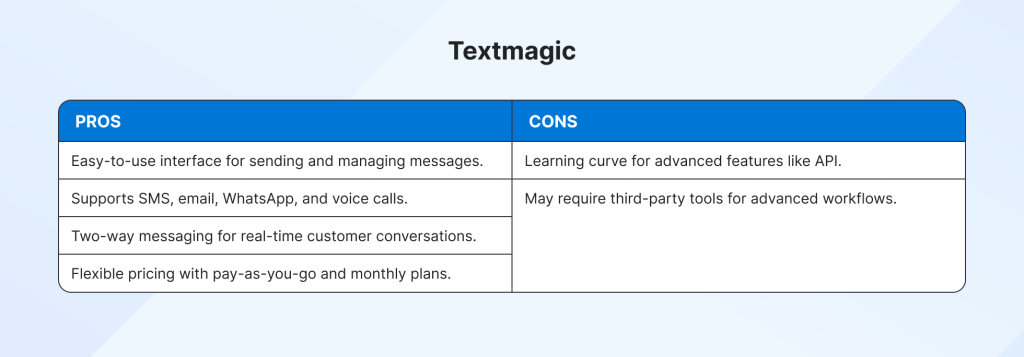
Use cases
- SaaS support: Manage multichannel conversations from one inbox.
- Customer service: Track tickets, tag issues, and use AI for faster replies.
- Marketing: Send targeted SMS and email campaigns with real-time insights.
- Sales: Follow up instantly and automate reminders across channels.
- Logistics: Coordinate field teams and deliveries via real-time SMS.
2. Salesforce Service Cloud

Image source: Salesforce.com
Service Cloud offers a comprehensive suite of tools for managing customer interactions, streamlining workflows, and enhancing customer satisfaction.
Key features
- Omni-channel routing: Directs inquiries to the right agents.
- Einstein AI: Offers predictive analytics and automated workflows.
- Centralized repository: Quick access to resolve issues.
- Advanced reporting: Monitors performance and satisfaction.
- Seamless integration: Works with Salesforce and third-party apps.
- Mobile access: Fully functional mobile app.
Pricing
- Essentials: $25/user/month
- Professional: $75/user/month
- Enterprise: $150/user/month
- Unlimited: $300/user/month
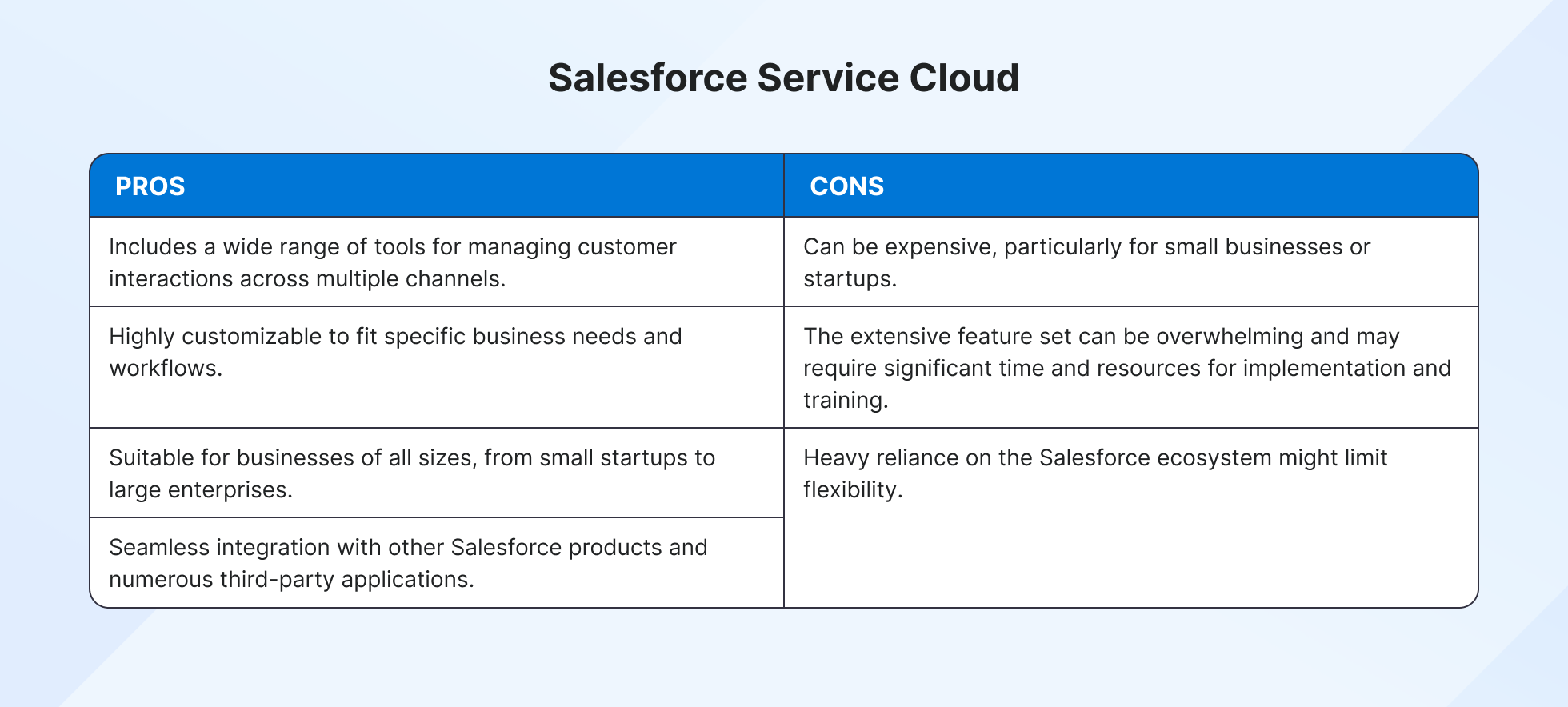
Use cases
- SaaS companies: Multi-channel customer support (email, chat, phone, social media).
- Issue management: Automated case routing and intelligent workflows.
- Analytics: Insights into customer behavior and satisfaction.
- Field service: Real-time collaboration and efficient management of field technicians.
3. HubSpot
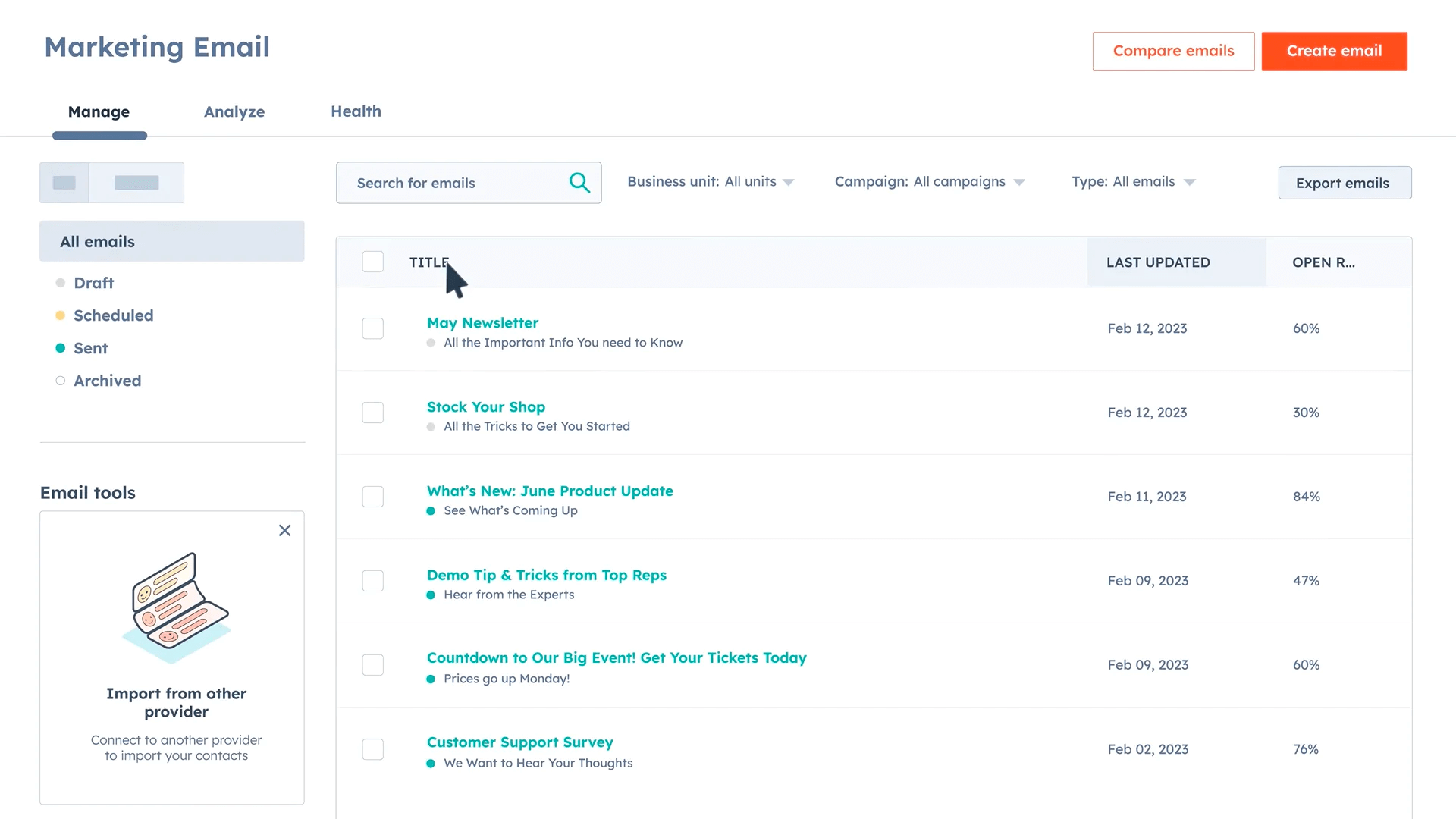
Image source: Hubspot.com
HubSpot is designed to help businesses of all sizes attract visitors, convert leads, and close customers. Its user-friendly interface and comprehensive functionality make it a popular choice for managing customer interactions.
Key features
- HubSpot CRM integration: Unified view of customer interactions and data.
- Marketing tools: Email marketing, social media management, SEO, content management, and lead generation.
- Sales tools: Email tracking, meeting scheduling, pipeline management, and sales automation.
- Customer service tools: Ticketing, live chat, knowledge base, and feedback surveys.
- Analytics and reporting: Track performance metrics and gain customer insights.
- Automation: Streamlines marketing, sales, and service processes.
- Third-party integration: Enhances functionality and flexibility.
Pricing
- Free: Basic CRM, email marketing, and live chat tools.
- Starter: $50/month per hub (Marketing, Sales, or Service).
- Professional: $890/month for Marketing Hub, $450/month for Sales Hub, $450/month for Service Hub.
- Enterprise: $3,200/month for Marketing Hub, $1,200/month for Sales Hub, $1,200/month for Service Hub.
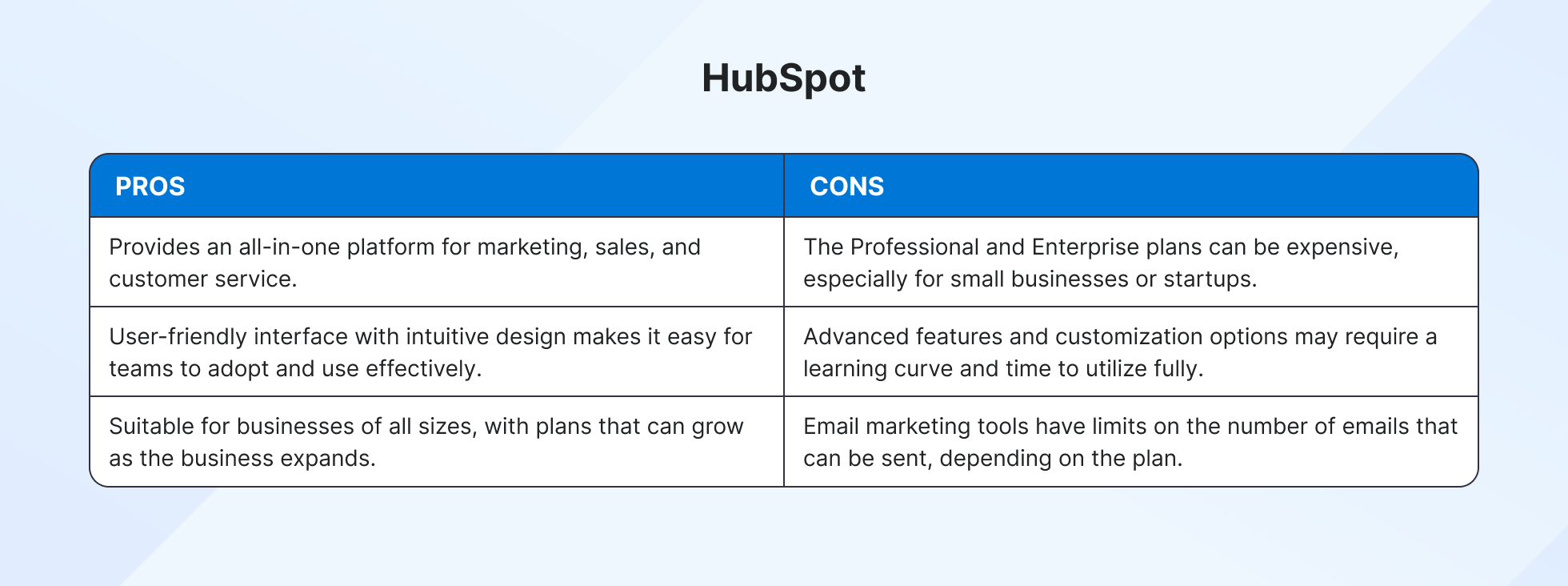
Use cases
- Content marketing: Ideal for attracting and engaging customers through SEO and social media.
- Customer support: Extensive tools for managing inquiries, support tickets, and feedback.
- Sales optimization: Tools for email tracking, deal management, and automated outreach.
- Advanced analytics: Provides detailed insights into marketing, sales, and customer service performance for data-driven decisions.
4. Zendesk
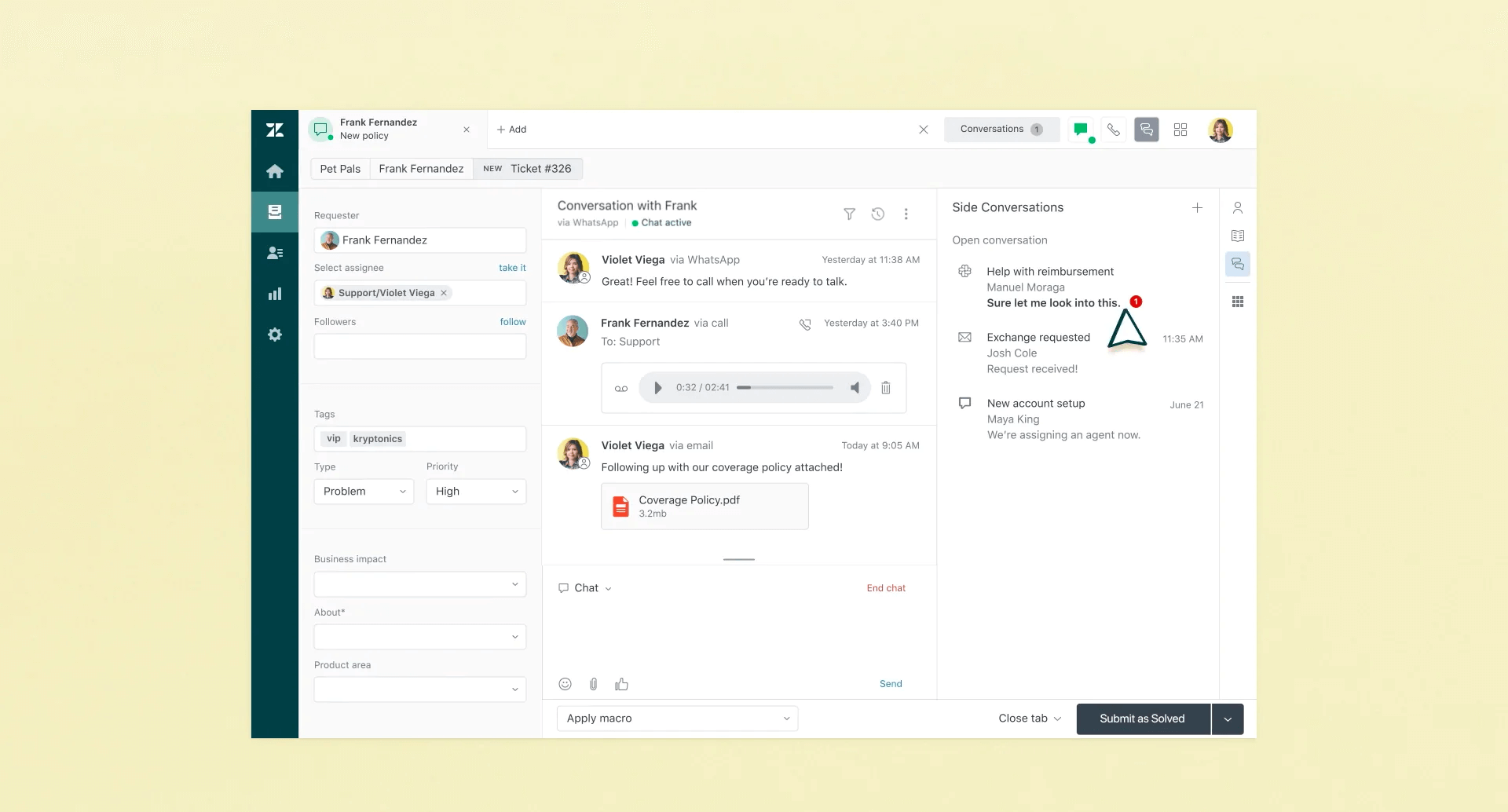
Image source: Zendesk.com
Zendesk provides tools for customer service, engagement, and support that enable companies to provide better customer experiences. It integrates various communication channels into a single platform, making it easier for businesses to manage customer interactions and support processes.
Key features
- Ticketing system: Track, prioritize, and resolve customer support requests efficiently.
- AI bots and automation: Streamline tasks, route tickets, and provide instant support.
- Customizable workflows: Match specific needs of different businesses and industries.
- Collaboration tools: Shared inboxes and internal notes for agent collaboration.
Pricing
- Basic: $19/agent/month
- Growing teams: $49/agent/month
- Advanced: $99/agent/month
- Integrated service: $49/agent/month
- Advanced suite: $79/agent/month
- Full-featured: $99/agent/month
- Complete: $150/agent/month
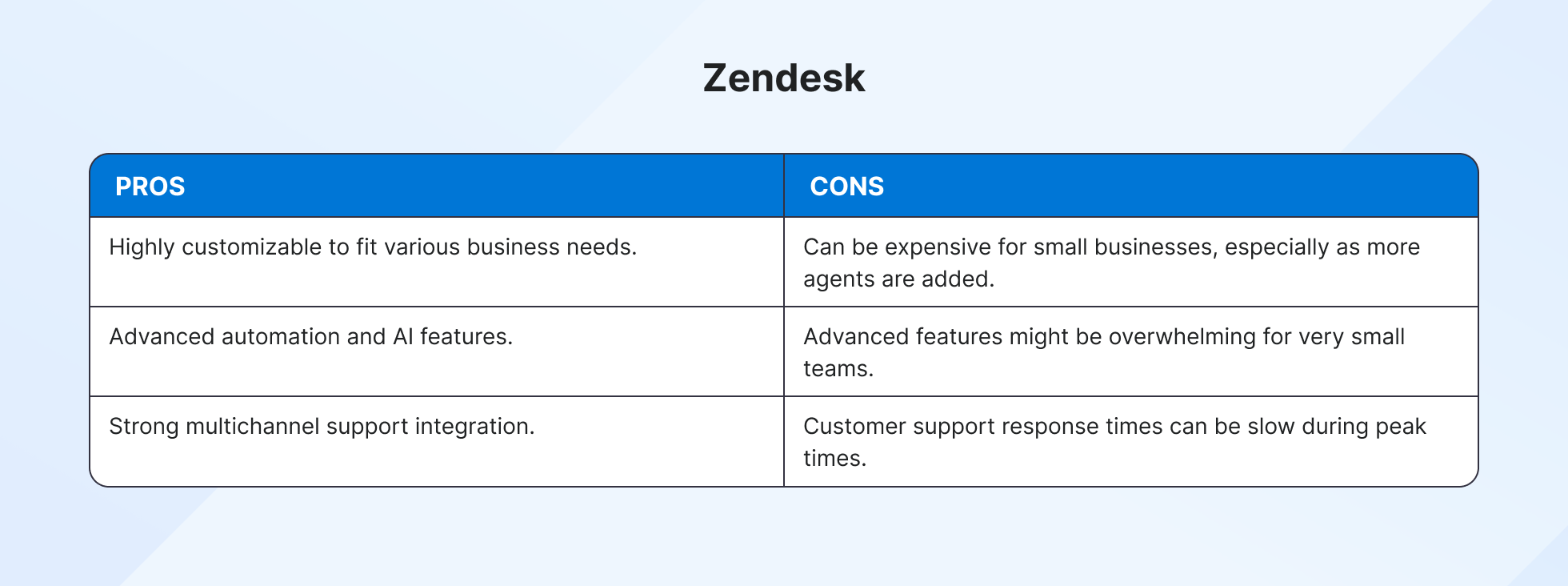
Use cases
- E-commerce: Manage inquiries, process returns, and provide after-sales support.
- Technology: Offer technical support, handle product inquiries, manage updates, and troubleshoot issues.
- Healthcare: Coordinate patient communications, schedule appointments, and manage patient queries.
- Financial services: Manage client inquiries, provide account support, and address financial advice and service issues.
5. Intercom
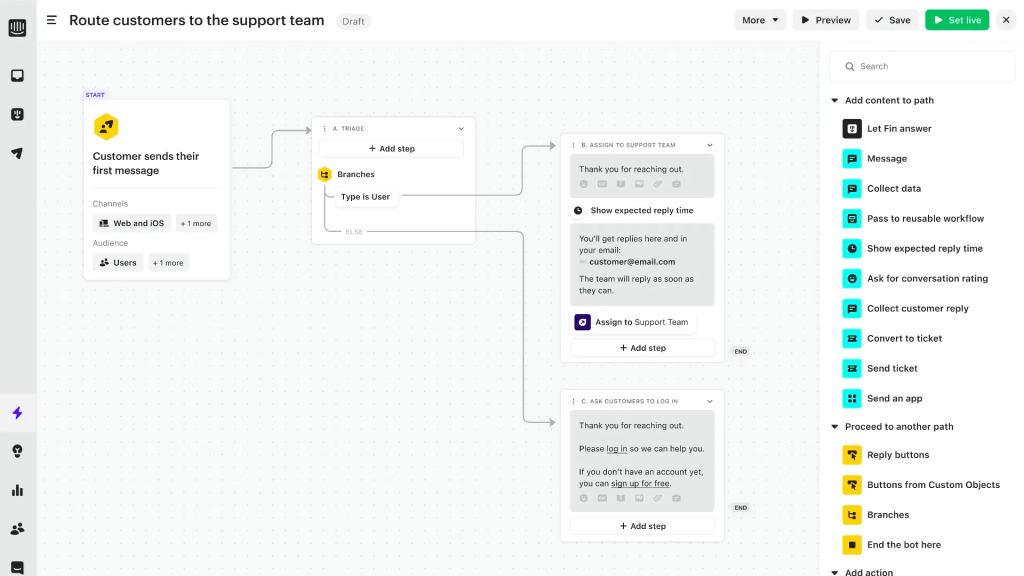
Image source: Intercom.com
Intercom enables businesses to engage with their customers through targeted messages, in-app chats, and automated workflows, improving customer experience and support efficiency
Key features
- Real-time chat: Engage with website visitors and customers instantly.
- Interactive tours: Guide users through product features and onboarding.
- In-app messaging: Send messages within mobile and web apps to engage users at the right moment.
Pricing
- Starter: $74/month
- Growing businesses: $74/month + charges based on active users and features
- Larger businesses: Custom pricing
- Enterprises: Custom pricing
- Tailored plans: Pricing upon request
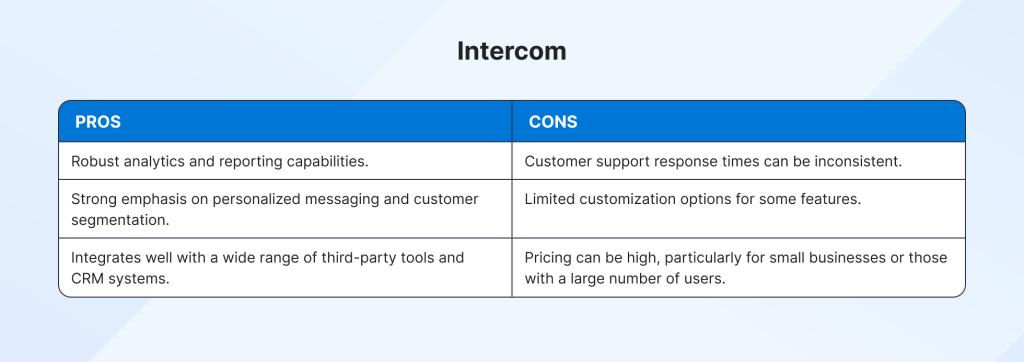
Use cases
- SaaS: In-app support, user onboarding, personalized communication.
- E-commerce: Real-time customer engagement, product inquiries, post-purchase support.
- Financial services: Personalized advice, client inquiries, secure messaging.
- Education & e-learning: Course inquiries, enrollment, technical support for online platforms.
6. Freshdesk
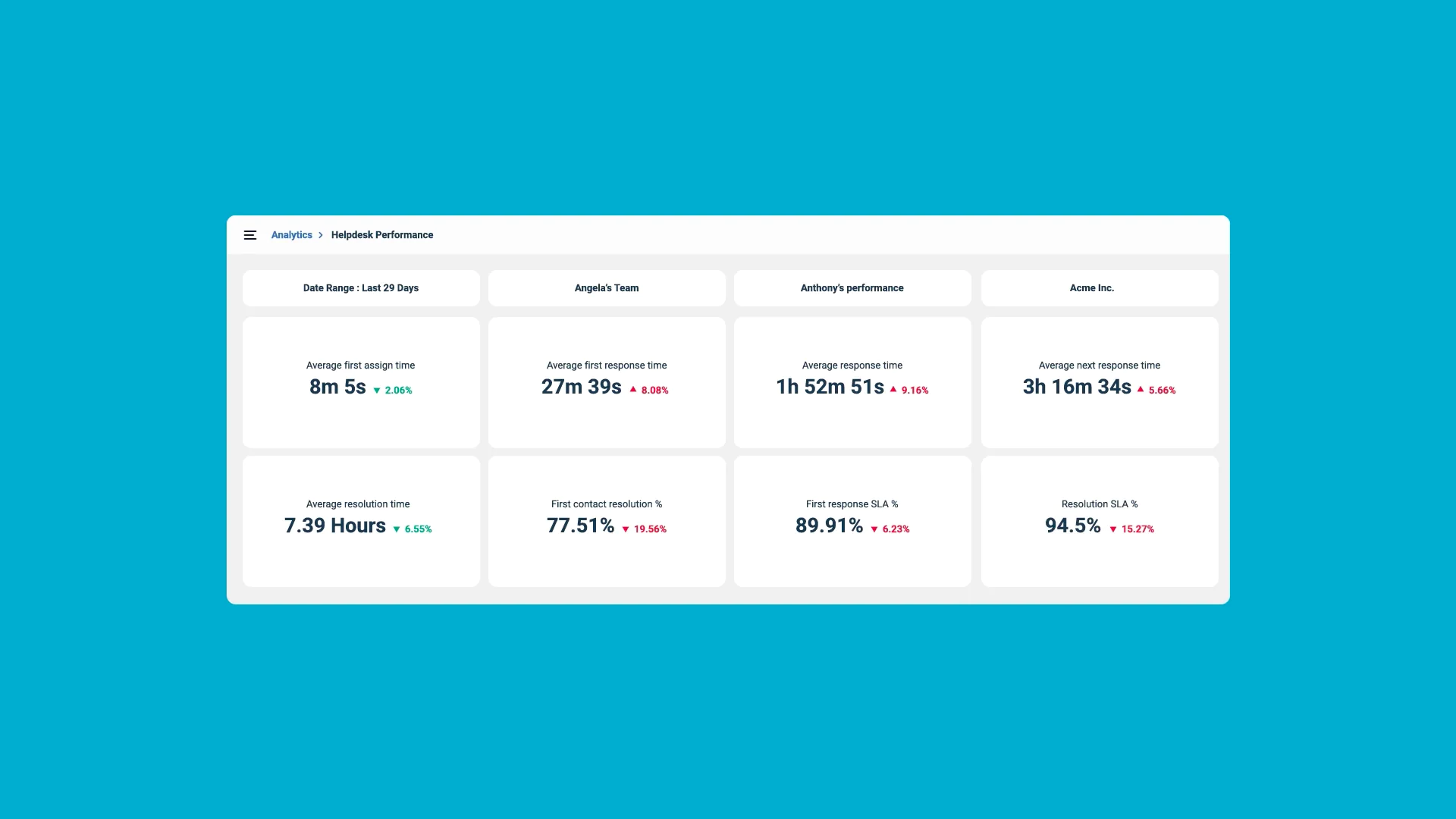
Image source: Freshworks.com
Freshdesk provides businesses with a unified platform to manage customer interactions across multiple channels and a range of tools to help support teams deliver faster and more effective customer service.
Key features
- Mobile app: Manage support tickets and communicate with customers on the go.
- Customer feedback: Gather and analyze feedback through surveys and ratings.
- Self-service portal: Create a knowledge base and community forums for customer self-help.
Pricing
- Basic: unlimited agents
- Advanced: $18/agent/month
- Larger teams: $59/agent/month
- Enterprise: $95/agent/month
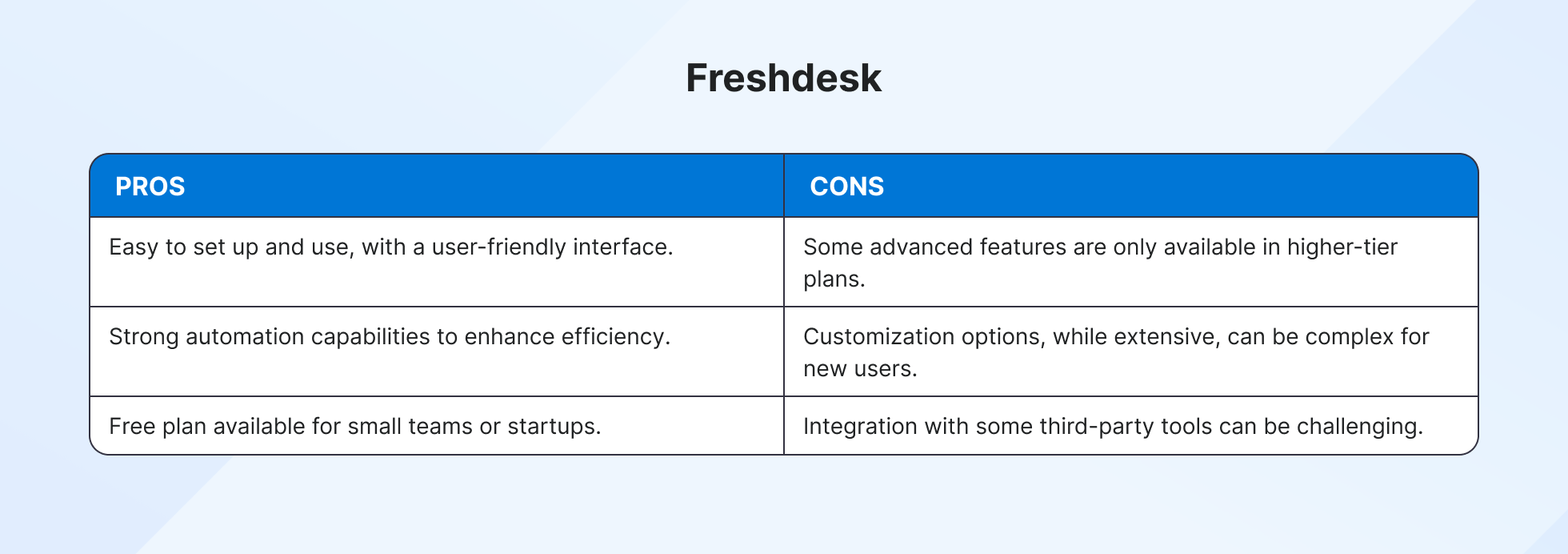
Use cases
- Retail chains: Manage customer service, inventory inquiries, and process refunds across multiple stores.
- Educational institutions: Support admissions, course inquiries, and technical support for online learning platforms.
7. Pipedrive
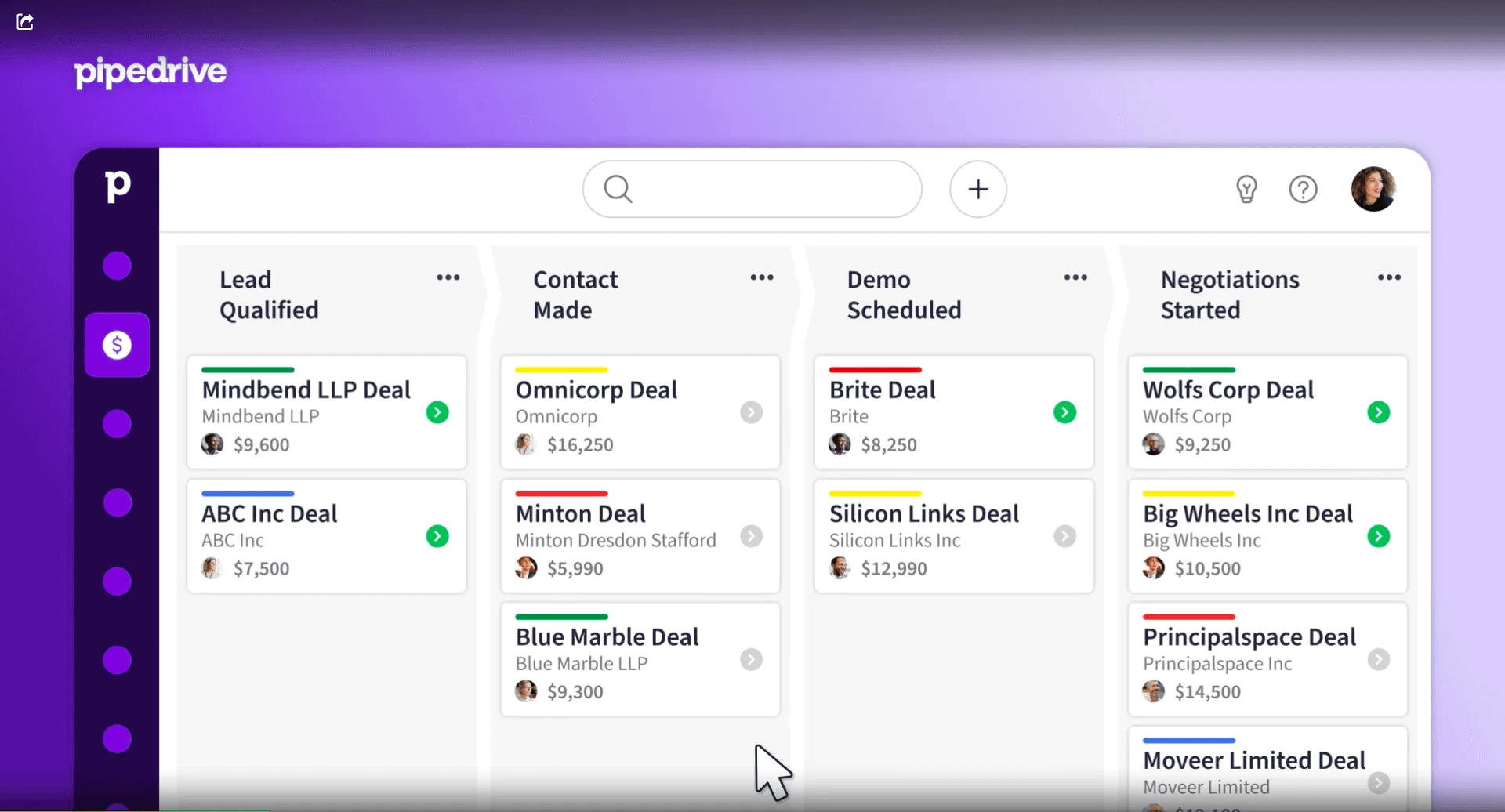
Image source: Pipedrive.com
Pipedrive focuses on sales pipeline management, offering a visual and intuitive interface that allows users to track deals, manage contacts, and automate various sales tasks.
Key features
- Customizable dashboards: Display relevant data and KPIs for users or teams.
- Activity tracking: Schedule and track calls, meetings, and tasks.
- Sales pipeline management: Manage and track deals through different stages.
Pricing
- Essential: $14.90/user/month
- Advanced: $24.90/user/month
- Professional: $49.90/user/month
- Enterprise: $99.00/user/month
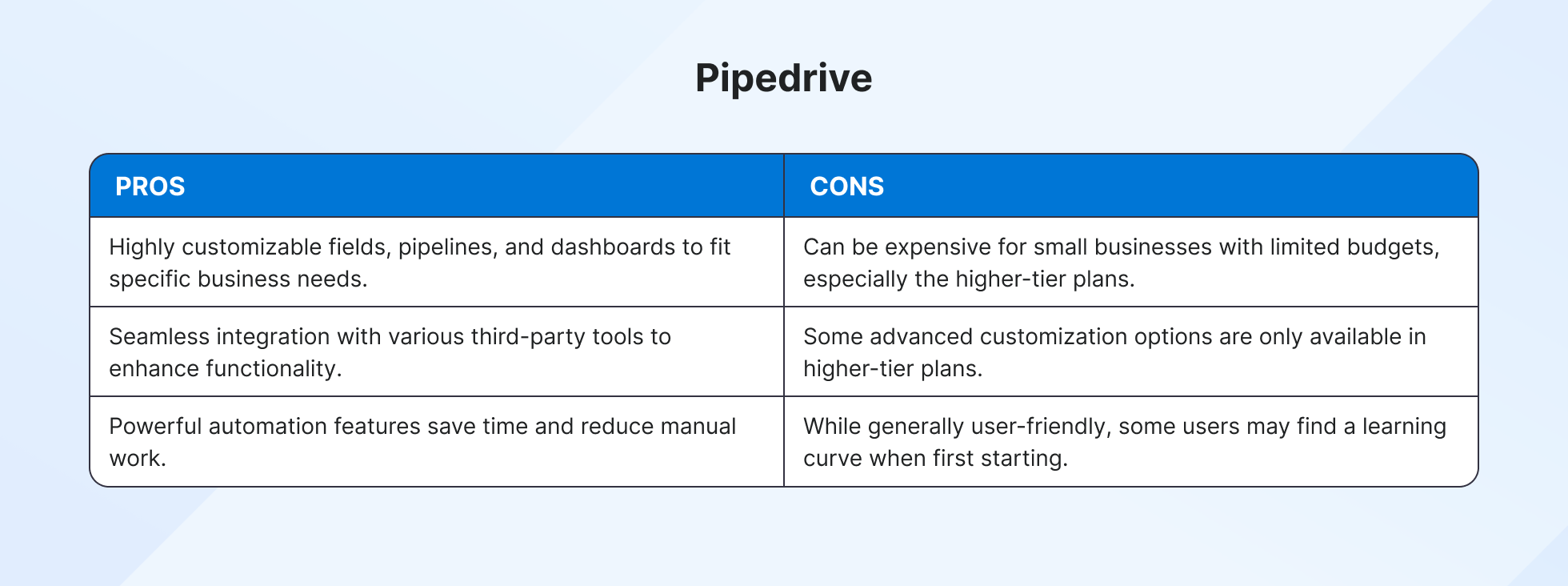
Use cases
- Consulting firms: Manage client projects, track sales opportunities, and automate tasks.
- Real estate: Track property deals, manage client info, and schedule viewings.
- SMBs: Affordable, easy-to-use CRM for managing sales processes.
8. Marketo
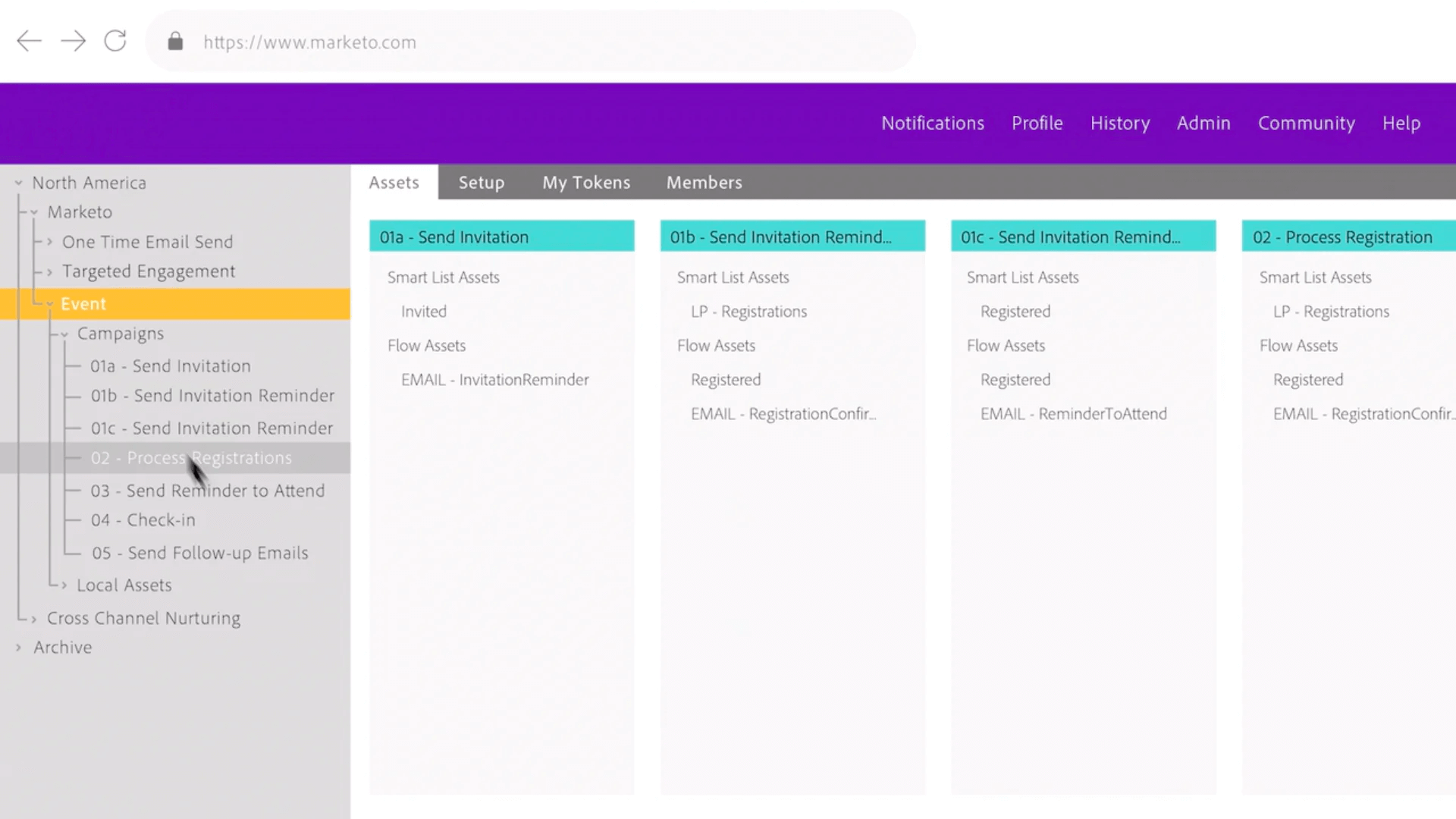
Image source: Business.Adobe.com
Marketo, an Adobe company, offers a comprehensive suite of tools for email marketing, lead management, consumer marketing, customer base marketing, and mobile marketing.
- Account-Based Marketing (ABM): Target specific accounts with tailored campaigns and measure engagement.
- Event management: Plan, promote, and track events, including webinars and live events.
- CRM integration: Connect with systems like Salesforce to provide sales teams with valuable insights.
Pricing
Marketo’s pricing is not publicly listed on their website and requires contacting their sales team for a custom quote. Pricing vary based on the size of the business, number of users, and specific feature needs.
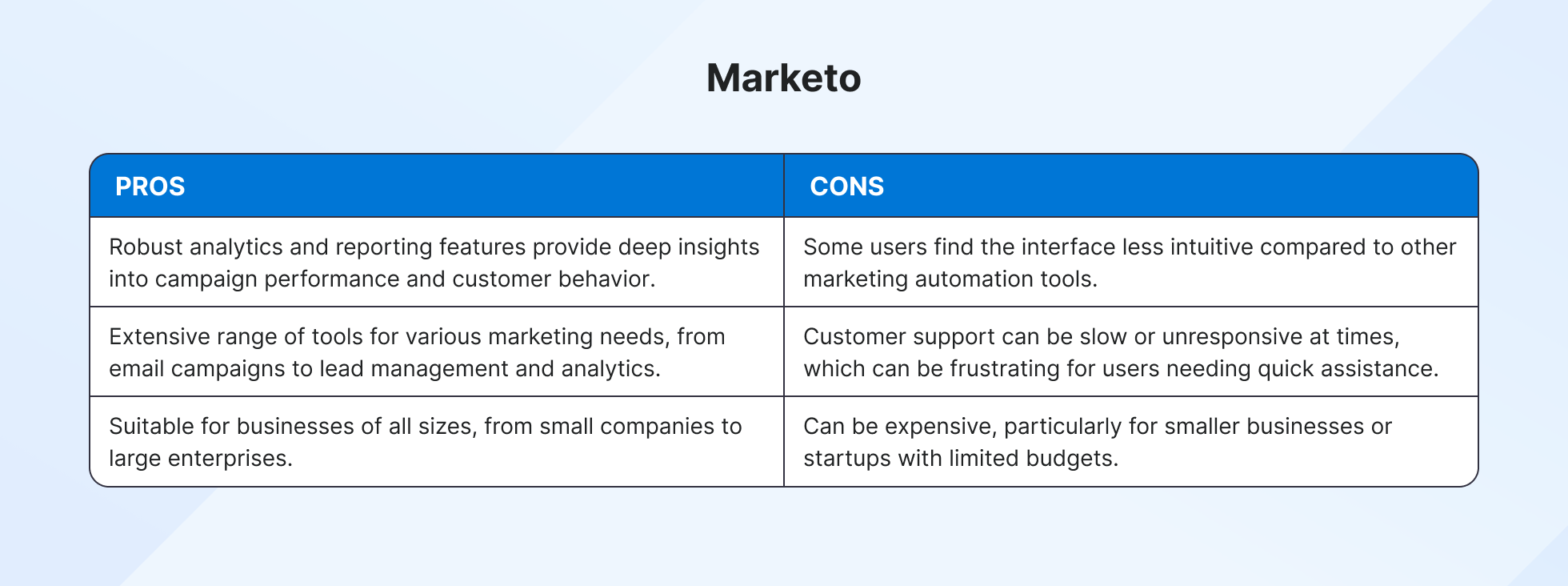
Use cases
- Large organizations: Manage and automate complex marketing efforts.
- Tech firms: Handle product launches, engage prospects, and track interactions across channels.
- Healthcare organizations: Enhance patient engagement, manage events, and target communication.
9. ActiveCampaign
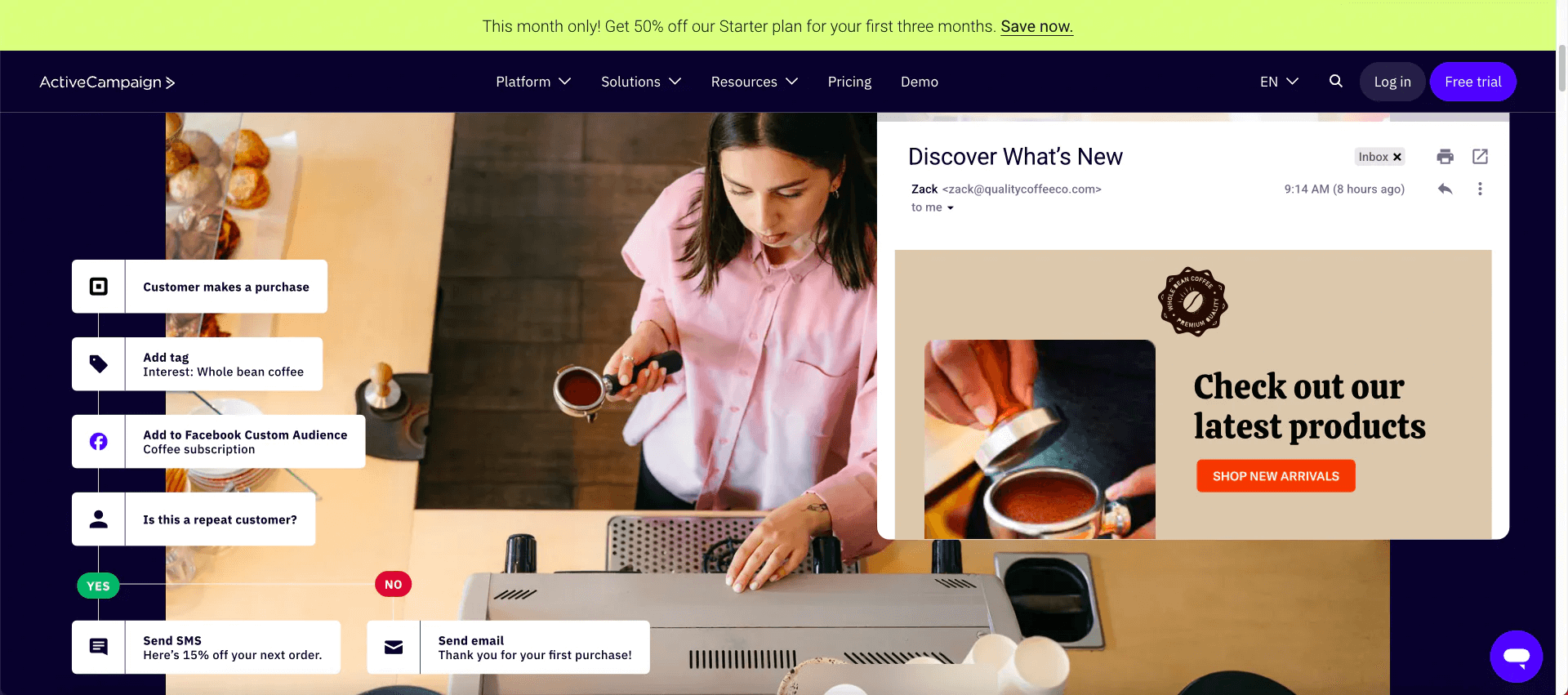
Image source: ActiveCampaign,com
ActiveCampaign is designed to help businesses of all sizes engage with their customers and grow their sales through personalized, automated marketing campaigns.
Key features
- Visitor behavior analysis: Monitors and analyzes website visitor behavior to tailor marketing efforts.
- App integration: Integrates with over 850 apps, including e-commerce platforms, CRMs, and other marketing tools.
- Lead scoring: Scores leads based on interactions and engagement to prioritize follow-ups.
Pricing
- Lite: $9/month (500 contacts)
- Plus: $49/month (500 contacts)
- Professional: $149/month (500 contacts)
- Enterprise: Custom pricing

Use cases
- Nonprofit organizations: Automate donor communications, manage fundraising campaigns, and engage with volunteers.
- Consulting firms and agencies: Manage client relationships, automate follow-ups, and streamline sales processes.
- SaaS: Nurture leads, onboard new users, and retain customers through targeted campaigns and automation.
10. Sprout Social
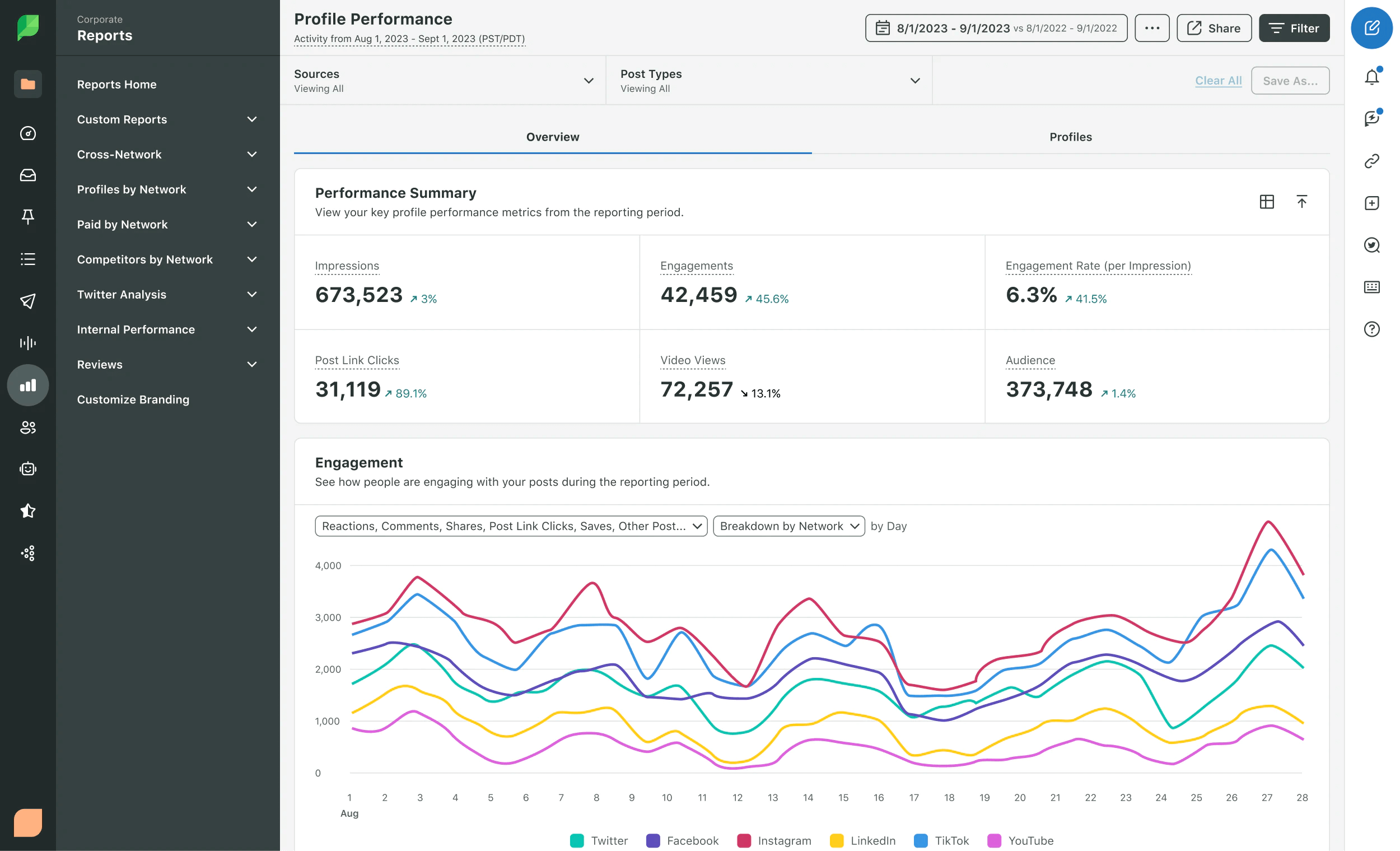
Image source: SproutSocial.com
Sprout Social is widely used by businesses of all sizes, from small startups to large enterprises, to streamline their social media efforts and improve customer engagement.
Key features
- Advanced social listening: Analyze trends, sentiment, and audience insights.
- Centralized inbox: Manage and respond to messages, comments, and mentions from all social media accounts in one place.
- Social media monitoring: Track mentions, hashtags, and keywords to stay on top of brand and industry conversations.
Pricing
- Standard: $249/month for up to 5 social profiles
- Professional: $399/month for up to 10 social profiles
- Advanced: $499/month for up to 10 social profiles
- Enterprise: Custom pricing for larger organizations
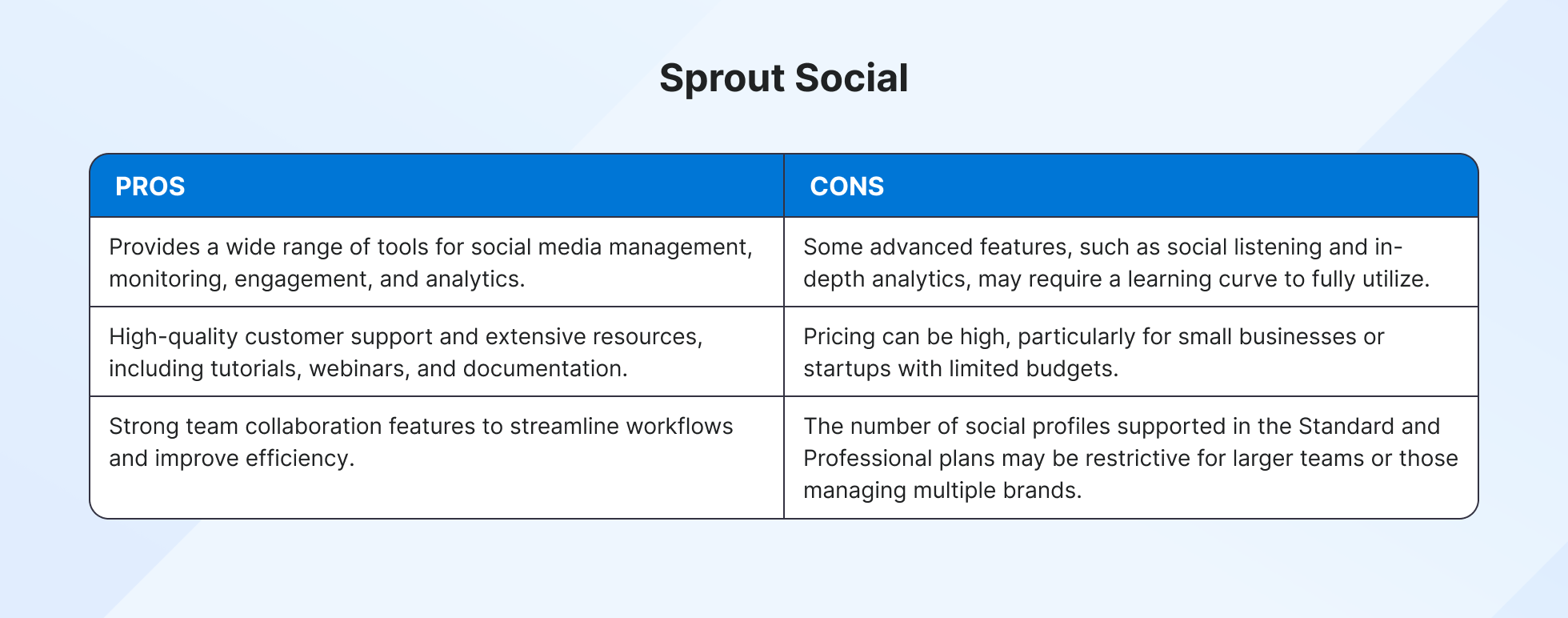
Use cases
- Content management: Ideal for businesses managing and scheduling social media content across multiple platforms from a single interface.
- Real-time engagement: Effective for engaging with customers promptly by responding to messages, comments, and mentions.
- Team collaboration: Excellent for teams needing to collaborate on social media tasks, manage workflows, and ensure content consistency across channels.
11. Klaviyo
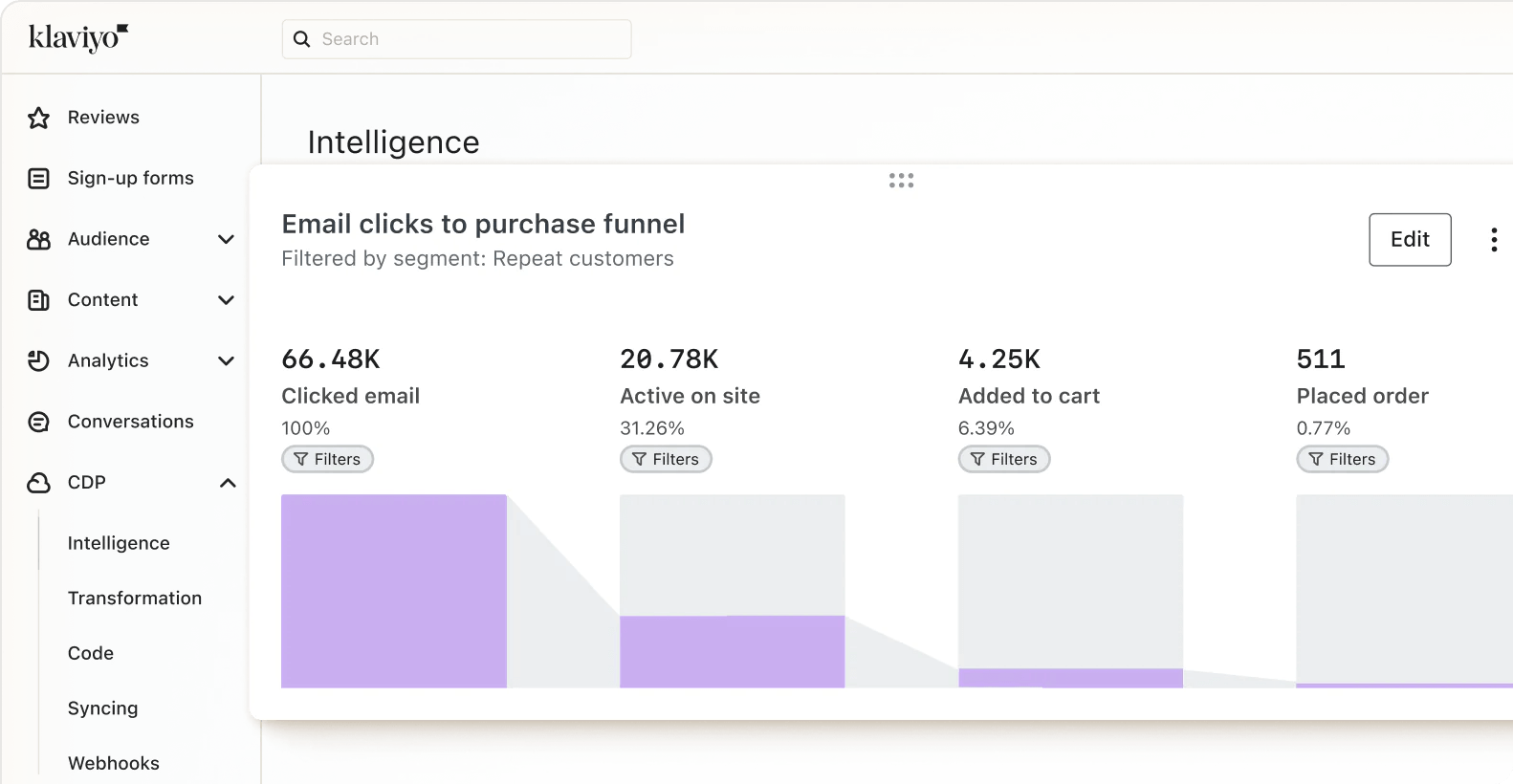
Image source: Klaviyo.com
Klaviyo incorporates powerful automation capabilities and robust analytics, helping businesses deliver effective email marketing campaigns that resonate with their audience.
Key features
- Centralized customer data: Manage data to create comprehensive profiles and understand customer behavior across multiple touchpoints.
- Advanced automation: Send personalized emails based on customer behavior, lifecycle stages, and purchase history.
- Customer segmentation: Segment customers based on purchase behavior, browsing activity, and engagement metrics to deliver targeted messaging.
Pricing
- Free plan: Up to 250 contacts and 500 emails/month.
- Paid plans: From $20/month, scaling with contacts and advanced features.
- SMS pricing: Additional cost based on message volume.
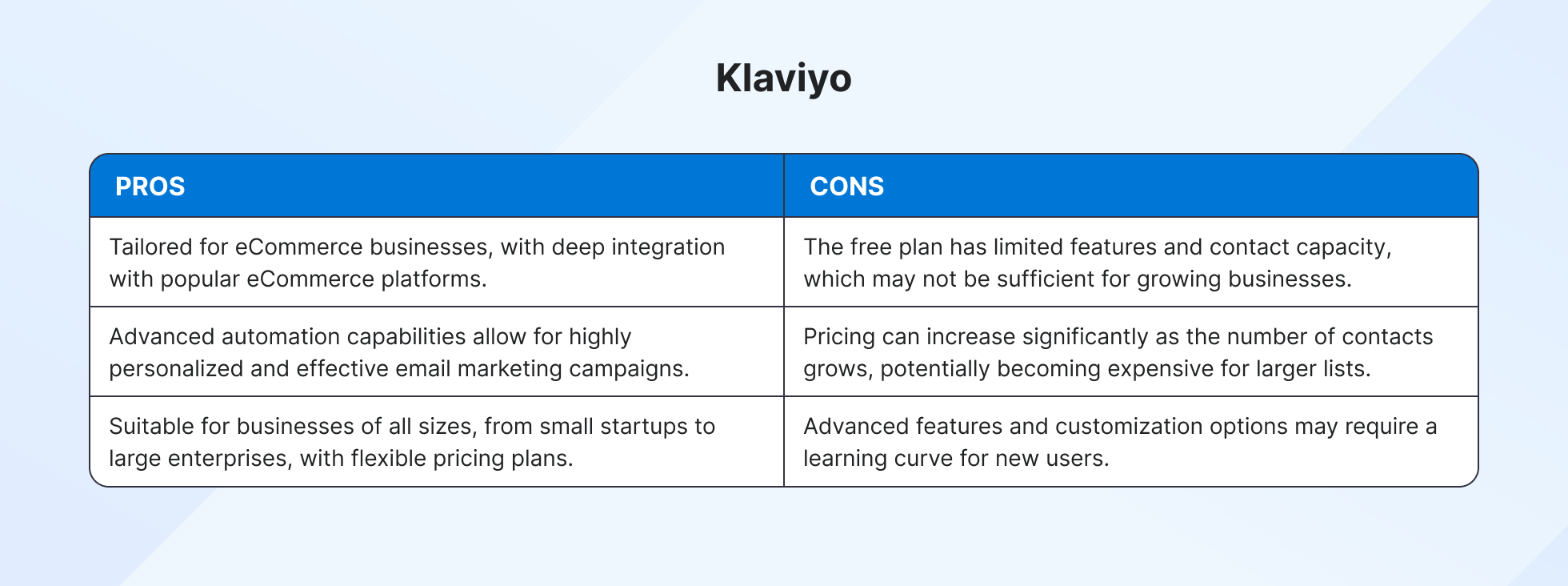
Use cases
- eCommerce businesses: Create targeted and personalized email campaigns based on customer data.
- Cart recovery: Automate abandoned cart recovery emails to re-engage customers and drive conversions.
- Revenue tracking: Track the direct revenue impact of email campaigns and understand the ROI of marketing efforts.
12. Gainsight
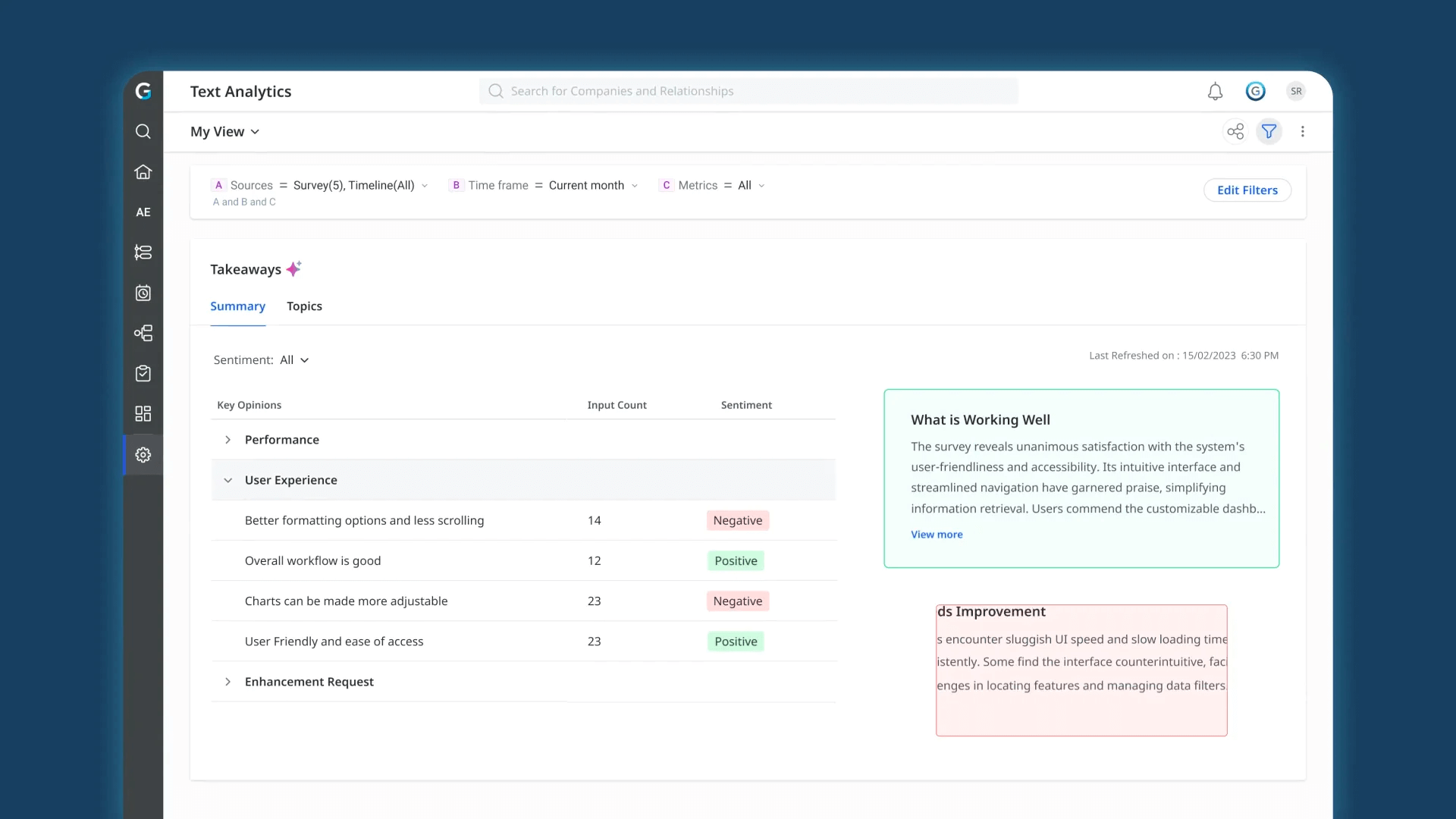
Image source: Gainsight.com
Gainsight focuses on delivering insights into customer health, driving engagement, and ensuring customers achieve their desired outcomes. It is particularly popular among SaaS companies and other subscription-based businesses that prioritize customer retention and growth.
Key features
- Comprehensive customer view: Consolidates all customer data into a single view to understand behavior and interactions across touchpoints.
- Feedback surveys: Create and distribute NPS and other surveys to gauge customer satisfaction and identify improvement areas.
- Customer health tracking: Monitor customer health with customizable scores based on metrics like product usage, support tickets, and feedback.
Pricing
Gainsight offers customized pricing based on the specific needs and size of your business. Pricing details are not publicly listed and typically require a consultation with their sales team.
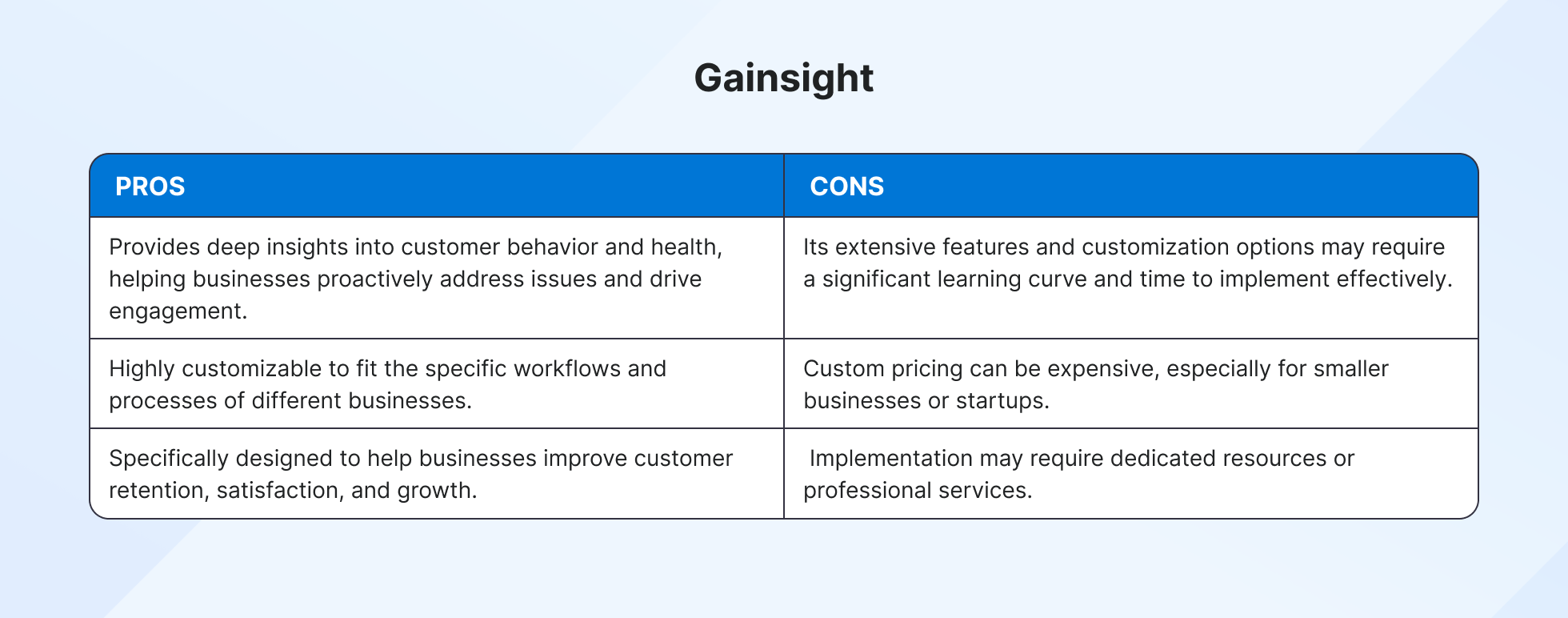
Use cases
- Revenue maximization: Identify upsell opportunities and manage renewals to maximize revenue and customer lifetime value.
- Product usage insights: Understand how customers use your product, identify areas for improvement, and drive adoption and engagement.
- Customer retention: Ideal for SaaS and subscription-based businesses looking to improve retention by proactively managing customer health and engagement.
13. Salesloft (formerly Drift)
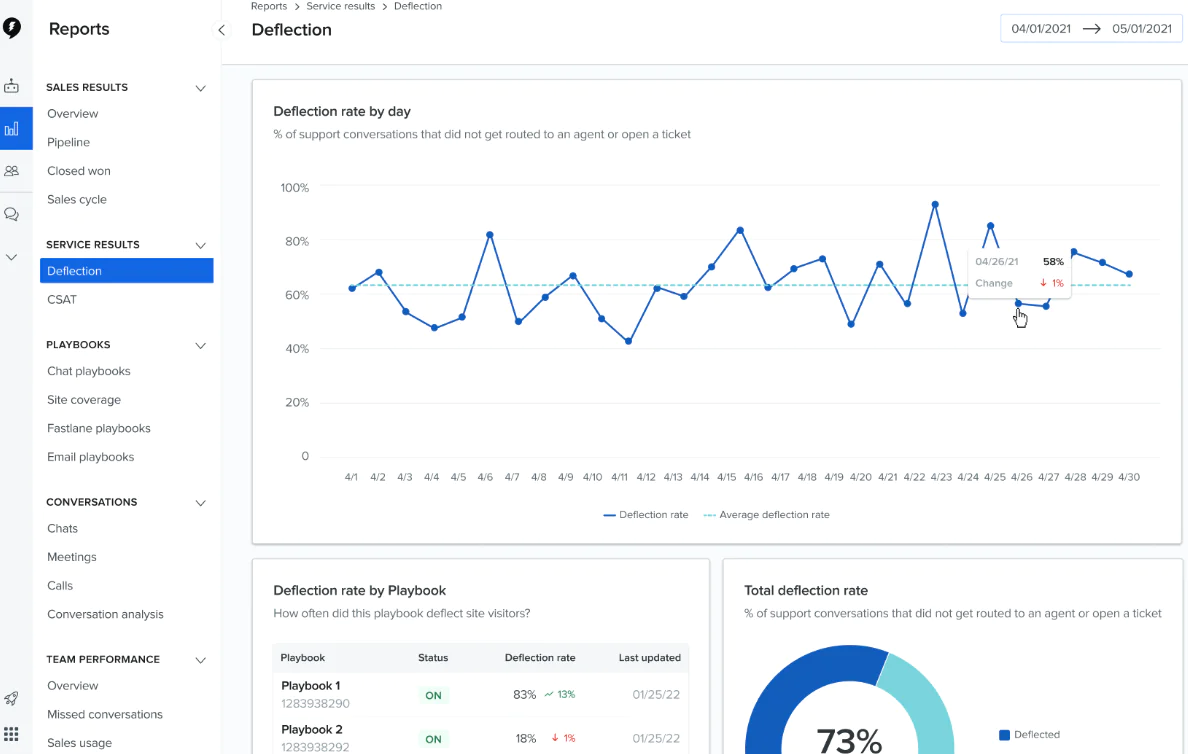
Image source: Salesloft.com
Drift enables companies to convert website visitors into leads, enhance customer interactions, and accelerate the sales cycle. It is particularly popular among B2B businesses looking to improve their marketing and sales processes.
Key features
- Personalized messaging: Tools to personalize campaigns for specific accounts and target high-value prospects.
- Real-time chat: Engage with website visitors, answer questions, and capture leads.
- Personalized landing pages: Create landing pages with chat functionality to engage visitors and drive conversions.
Pricing
- Free: Basic live chat and chatbot features
- Standard: $50/month per seat
- Pro: $500/month
- Enterprise: Custom pricing
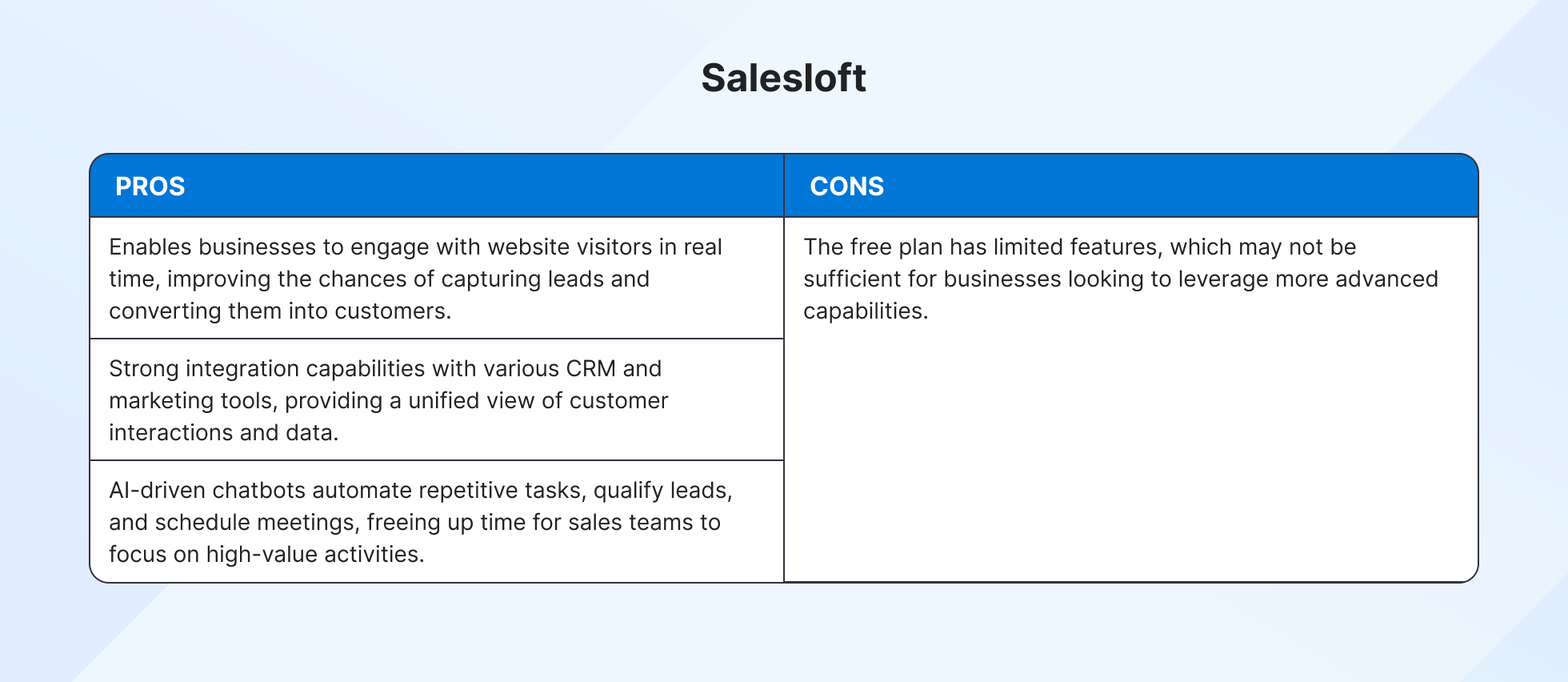
Use cases
- Lead capture and qualification: Ideal for businesses looking to capture and qualify leads in real-time through live chat and AI chatbots.
- B2B targeting: Suitable for B2B businesses targeting high-value accounts with personalized messaging and campaigns.
- Sales engagement: Helps sales teams engage with prospects more effectively, schedule meetings, and move leads through the sales funnel faster.
14. Hootsuite
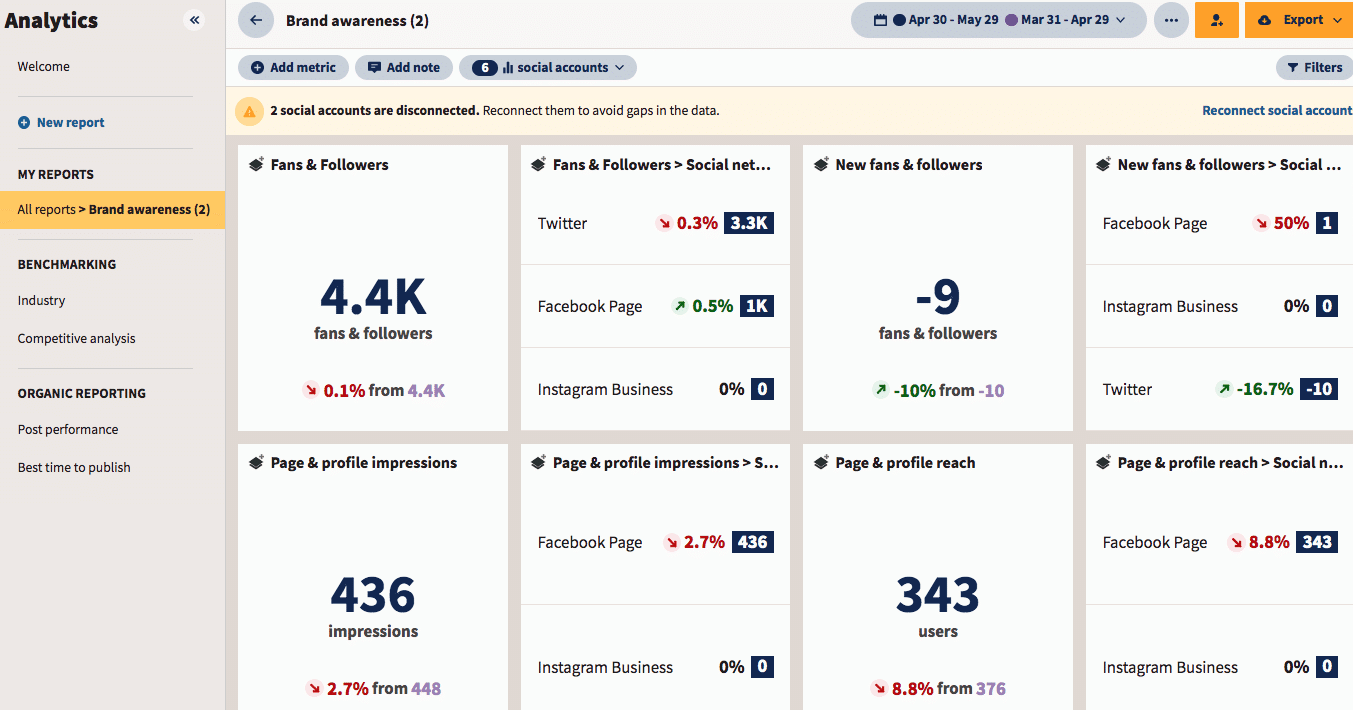
Image source: Hootsuite.com
Hootsuite is a powerful customer engagement platform that helps you manage social media and improve your customer service with advanced tools for scheduling, publishing, and analytics.
Key features
- Social media scheduling: Schedule and publish posts across Facebook, Twitter, Instagram, LinkedIn, and Pinterest.
- Centralized inbox: Manage and respond to messages, comments, and mentions from all social media accounts in one place.
- Third-party integration: Integrates with numerous applications, including CRM systems, help desk software, and marketing automation tools.
Pricing
- Professional: $99/month, supports 1 user and up to 10 social profiles.
- Team: $249/month, supports 3 users and up to 20 social profiles.
- Business: $739/month, supports 5 users and up to 35 social profiles.
- Enterprise: Custom pricing for larger organizations.
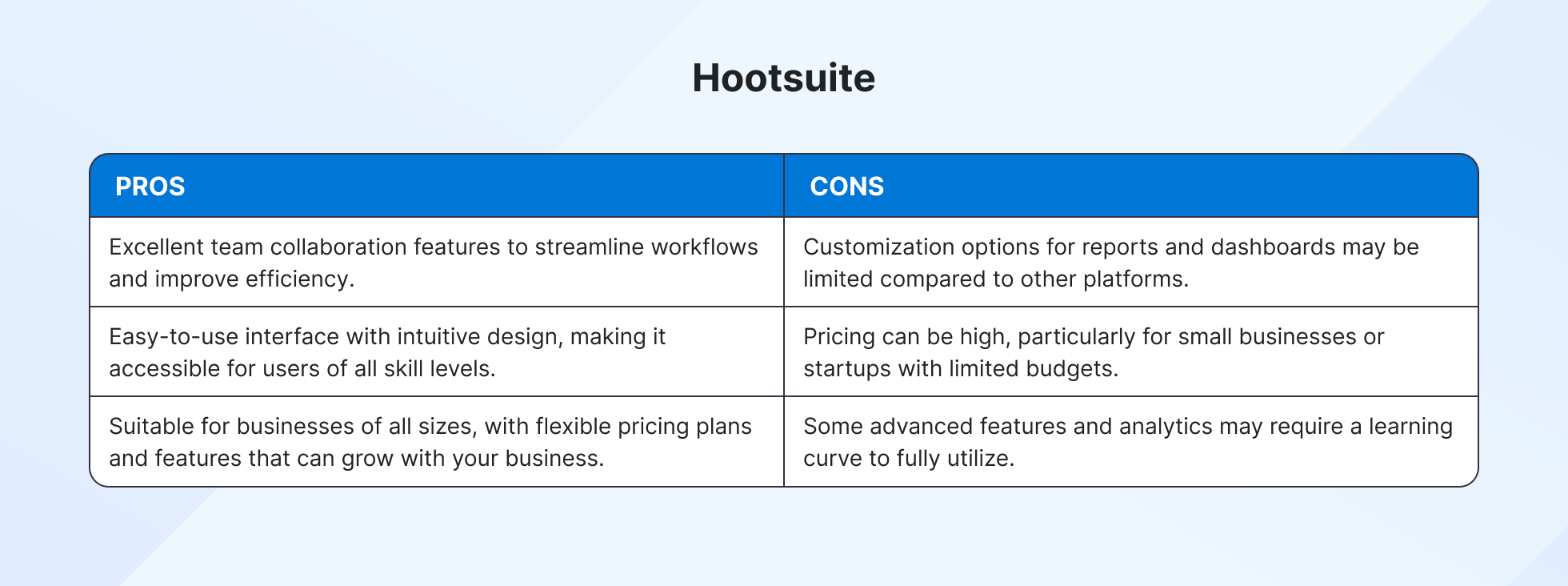
Use cases
- Team collaboration: Excellent for teams to collaborate on social media tasks, manage workflows, and ensure content consistency across channels.
- Brand monitoring: Useful for monitoring brand mentions, industry trends, and competitor activities to stay informed and responsive.
- Real-time engagement: Effective for engaging with customers in real-time, responding to messages, comments, and mentions promptly.
15. Mailchimp
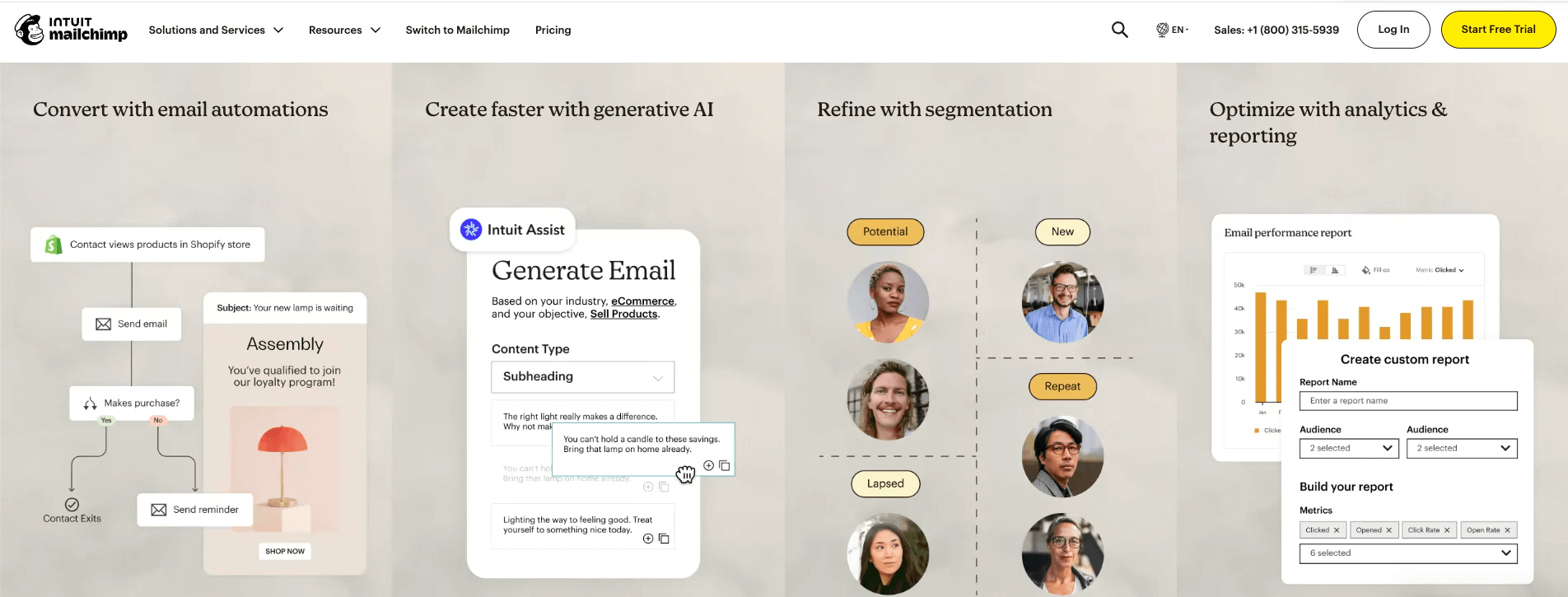
Image source: Mailchimp.com
Mailchimp offers tools for email marketing, audience management, and marketing automation. It also provides additional features for social media, landing pages, and more, making it a versatile solution for marketers.
Key features
- Landing pages: Build and publish landing pages to capture leads and drive conversions.
- Third-party integrations: Integrates with eCommerce platforms like Shopify and WooCommerce, CRM systems, and social media platforms.
- Email campaigns: Design and send customized email campaigns using a drag-and-drop editor and a wide range of templates.
Pricing
- Free: Up to 500 contacts and 1,000 emails/month
- Essentials: Starts at $13/month for up to 50,000 contacts
- Standard: Starts at $20/month for up to 100,000 contacts
- Premium: Starts at $350/month for over 200,000 contacts
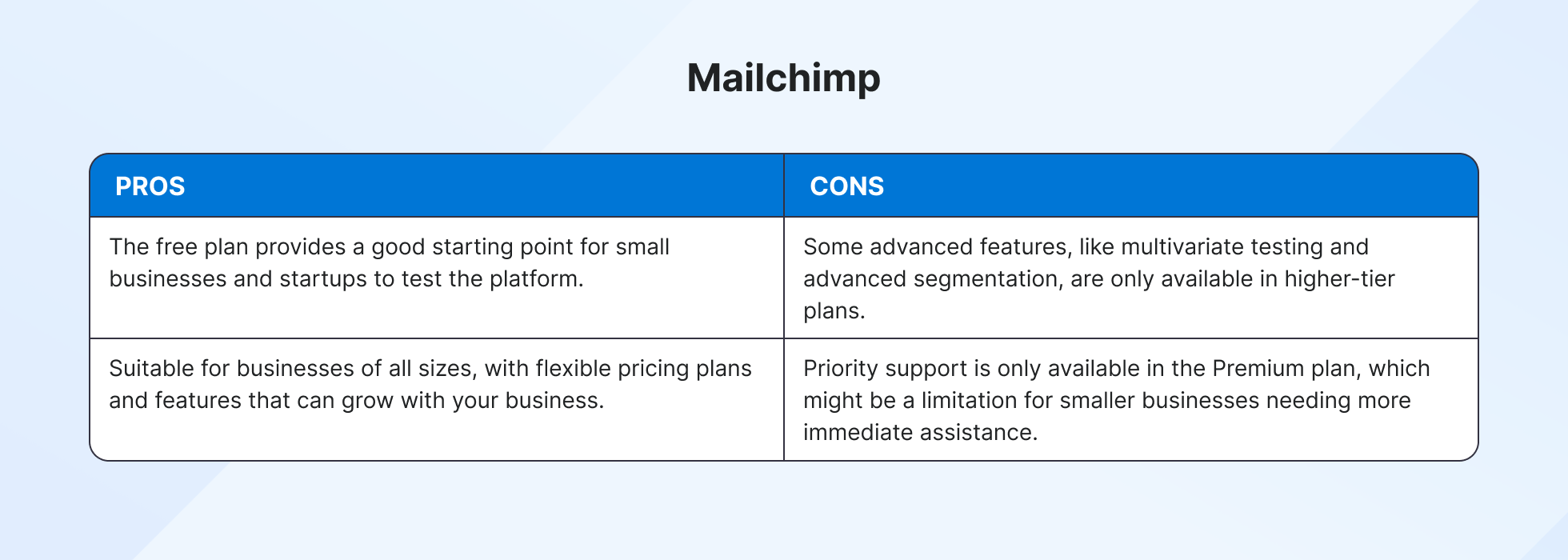
Use cases
- eCommerce businesses: Integrate their store with Mailchimp to send personalized product recommendations, abandoned cart reminders, and follow-up emails.
- Automated email workflows: Create automated email workflows to nurture leads and retain customers through personalized messaging.
- Email campaigns: Design, send, and analyze email campaigns to engage with their audience and drive conversions.
16. Braze
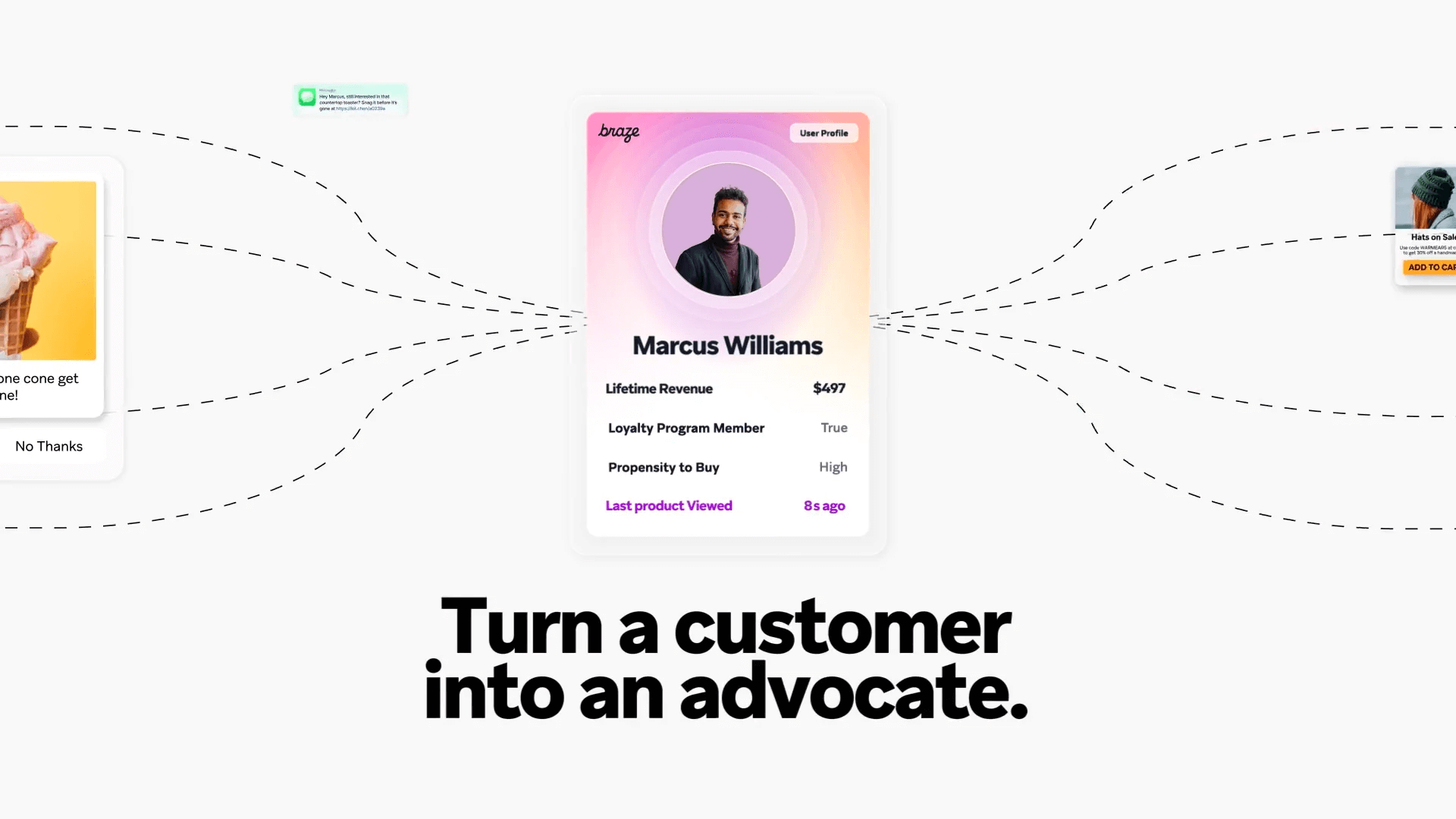
Image source: Braze.com
Braze enables personalized, multi-channel messaging across various digital channels, such as email, mobile, web, and more. It is known for its robust data capabilities, real-time interactions, and a strong focus on enhancing user experiences.
Key features
- Real-time data processing: Collects and processes customer data in real time for timely and relevant messaging.
- Campaign management: Comprehensive tools for creating, managing, and analyzing marketing campaigns.
- Personalized customer journeys: Allows businesses to design and automate personalized customer journeys.
Pricing
Braze offers a customized pricing model based on the specific needs of a business. Factors influencing the cost include the number of active users, the volume of messages sent, and additional features or integrations required. To get a precise quote, you will need to contact Braze directly.

Use cases
- Travel and hospitality: Ideal for booking confirmations, travel updates, and personalized travel tips.
- Financial services: Send real-time transaction alerts, personalized financial advice, and fraud notifications.
- Media and entertainment: Preferred for content recommendations, subscription management, and user engagement campaigns.
Conclusion
When choosing the customer engagement platform, you should start with defining your goals. What will it help you achieve? Whether it’s improving customer support, driving sales, increasing retention, or enhancing marketing efforts, understanding your goals will guide the right decision.
Choose a platform that can grow with your business and includes multiple communication channels and integration capabilities. Consider the potential return on investment and weigh the cost against the benefits to avoid going over budget.
Take advantage of free trials to test the platform’s features and usability firsthand. If free trials aren’t available, request demos from the platform providers to see how the tools work in real-world scenarios and ask specific questions about your use cases.
Frequently Asked Questions (FAQs)
Engagement grows with strong onboarding experiences, targeted content, community involvement, and regular two-way communication.
Textmagic enables conversational SMS messages that support each phase of the customer journey.
Customer engagement platforms are designed to manage and automate direct interactions with customers, while customer experience platforms focus on gathering insights to improve overall satisfaction and loyalty.
A digital customer engagement platform is a software solution that centralizes customer interactions across various channels.
The SaaS customer engagement model is a strategy used by SaaS companies to attract, retain, and grow customer relationships through targeted communication and personalized experiences.
Related articles
A complete guide to horizontal communication in the workplace
How much time does your team spend in meetings, writ...
A guide to WhatsApp customer service with Textmagic
Using WhatsApp for customer service with Textmagic a...
Two-Factor Authentication text message: Is SMS 2FA secure?
As cyber criminals become more innovative in their e...
How to stop spam texts and block unwanted messages
In an era of fake news and increased risks to cybers...
Building customer trust through secure SMS marketing practices
Have you ever received an unsolicited sales pitch or...




